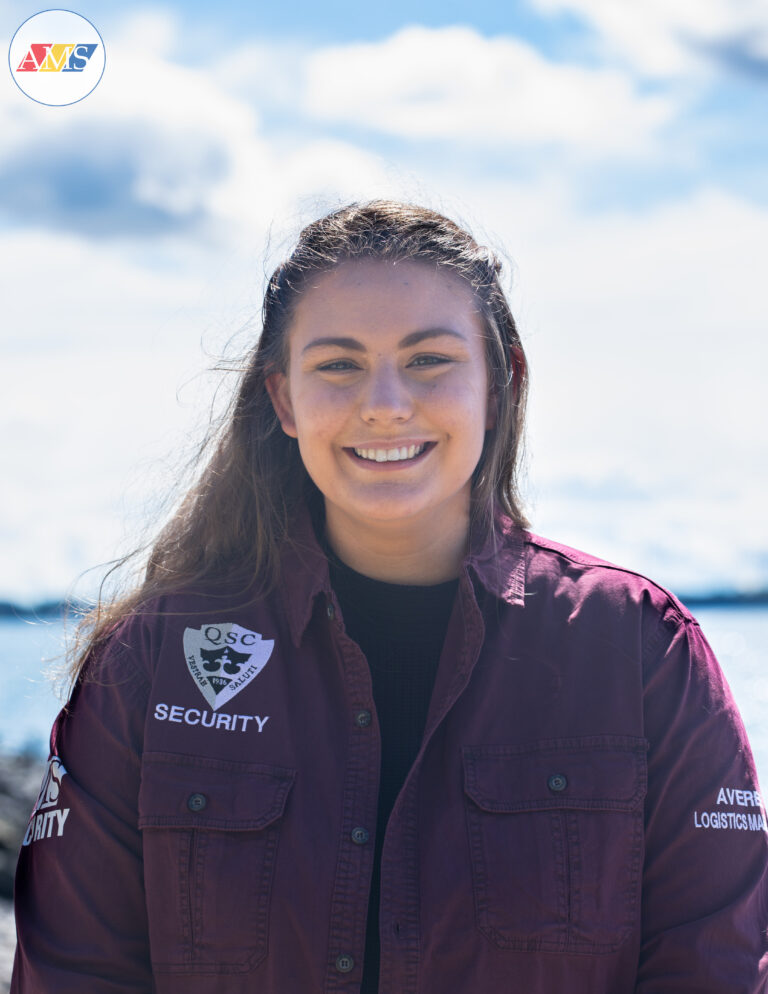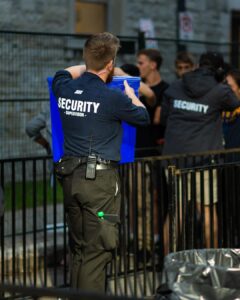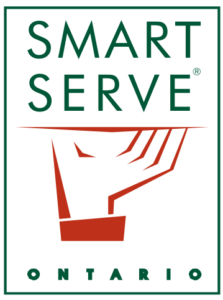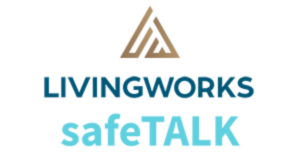Who Are We
Established in 1936, the Queen’s StudCons (QSC) represent the oldest student-run service on campus, embodying the spirit of peer-to-peer responsibility that is at the core of all AMS operations. QSC has been promoting an accountable campus culture for over 80 years, including the establishment of Campus Security and Walk–home, both are services that have become integral parts of the Queen’s community.
Currently, QSC staff act as both experience facilitators and resources for patrons at a variety of Queen’s events and establishments.

Joshua Bolton
Head Manager
Josh has been with the Queen’s Student Constables for 3 years having held every position available in the service. He just completed the requisites for a Bachelor of Arts (Hon) with a focus on Western European History. As a former nurse with fifteen years of experience in the health care system, Josh likes to present a mental-health-focused management style that will benefit the clients and staff equally.
Training, Preparation and Communication have been the core values of the service under Josh’s management as they prepare for a post-covid reopening. As the post-covid reopening of campus life begins, it will become even more important to focus on the effects of long-term isolation and self-distancing will have on the student body. With this in mind, Josh has endeavoured to implement new training protocols within the service that will help staff recognize the signs of distress and mental wellness while being able to provide the necessary resources to seek help.
When not at work Josh prefers to keep a hands-on approach to life by engaging in hobbies like gardening, woodworking and art collecting. An avid reader, Josh has a knack for listing random facts and regularly engages in discussions based on his extensive library. Someday Josh hopes he will get the chance to be on the security team during a Kevin Smith Q&A at Queen’s Campus.

Averee Mitchell
Assistant Manager (Logistics)
Averee has been with the Queen’s Student Constables since her first year at Queen’s, progressing from service staff, to supervisor, and now to Assistant Manager (Logistics). She just completed her Bachelor of Arts (Hon) with a major in French Studies and a minor in Indigenous Studies.
Throughout Averee’s time with the service, she has prioritized communication, growth and teamwork as her core values in the service.
When she is not working, she enjoys being outside in nature, as well as spending time with her cat – Kiwi! She has thoroughly enjoyed her time with the service and looks forward to further improving QSC over the next year.


Why People Trust Us
Before any staff member is allowed to begin patrols, they must also complete a QSC Related training program that is approximately 30 hours performed over a 4 day period and consists of:
Recognizing Individuals in Distress
Bystander Awareness
Anti-Oppression and Awareness training
Anti-Oppression and Awareness training
Anti-Oppression and Awareness training
Situational and Roleplay training

Primary Security Guard Training Course
This is an online 12 module training course that takes approximately 40 hours to complete and is performed in-house by the Management team. This course is fully accredited and approved by the Ontario Ministry of the Solicitor General

Basic First Aid and CPR
Basic First Aid and CPR is necessary to complete the Security Guard training program as determined by the Ontario Ministry of the Solicitor General. In order to make the training as accessible as possible there is no single training company currently required by QSC. However, All staff are required to maintain a minimum level of Basic First Aid and CPR-A.

Smartserve
As a requirement for the enforcement of any and all liquor license laws, all QSC staff undergo Smartserve training and are required to carry their Smartserve identification while on shift

Mental Health Awareness
All constables are enrolled and required to complete mental awareness training before being allowed to work in any position. The current standard for all constables is LivingWorks – Safetalk. This course is designed to help constables recognize the sign of mental distress and suicidal ideations.

Naloxone and Addiction training
All Constables are required to complete a training session through the KFL&A Public Health Network regarding recognizing signs of addiction and overdose. This prepares the constable for the realities of addictions and what to do in the event of an overdose.

Canadian Police Knowledge Network (CPKN)
Canadian Police Knowledge Network (CPKN) is a large network operating as a not-for-profit supported by a National Advisory Committee.
Fully licensed
We will treat our community members fairly and build great relationships with them, working together to drive the best possible value for our clients.
Ministry approved
We will treat our community members fairly and build great relationships with them, working together to drive the best possible value for our clients.
Insured
We will treat our community members fairly and build great relationships with them, working together to drive the best possible value for our clients.
Experience
You can count on Queen’s Student Constables to not only meet, but exceed all your needs and requests. We believe in treating everyone with kindness and respect is an important part of our job.
Training
Our staff are highly trained to identify and respond to emergency situations in a timely and effective manner. We understand the unique security challenges that exist within Queen’s University campus.
Certificate
We have advanced knowledge of the Occupational Health and Safety Act and the Workplace Hazardous Materials Information System (WHMIS). Our staff are able to apply this knowledge to whatever site we are assigned.
